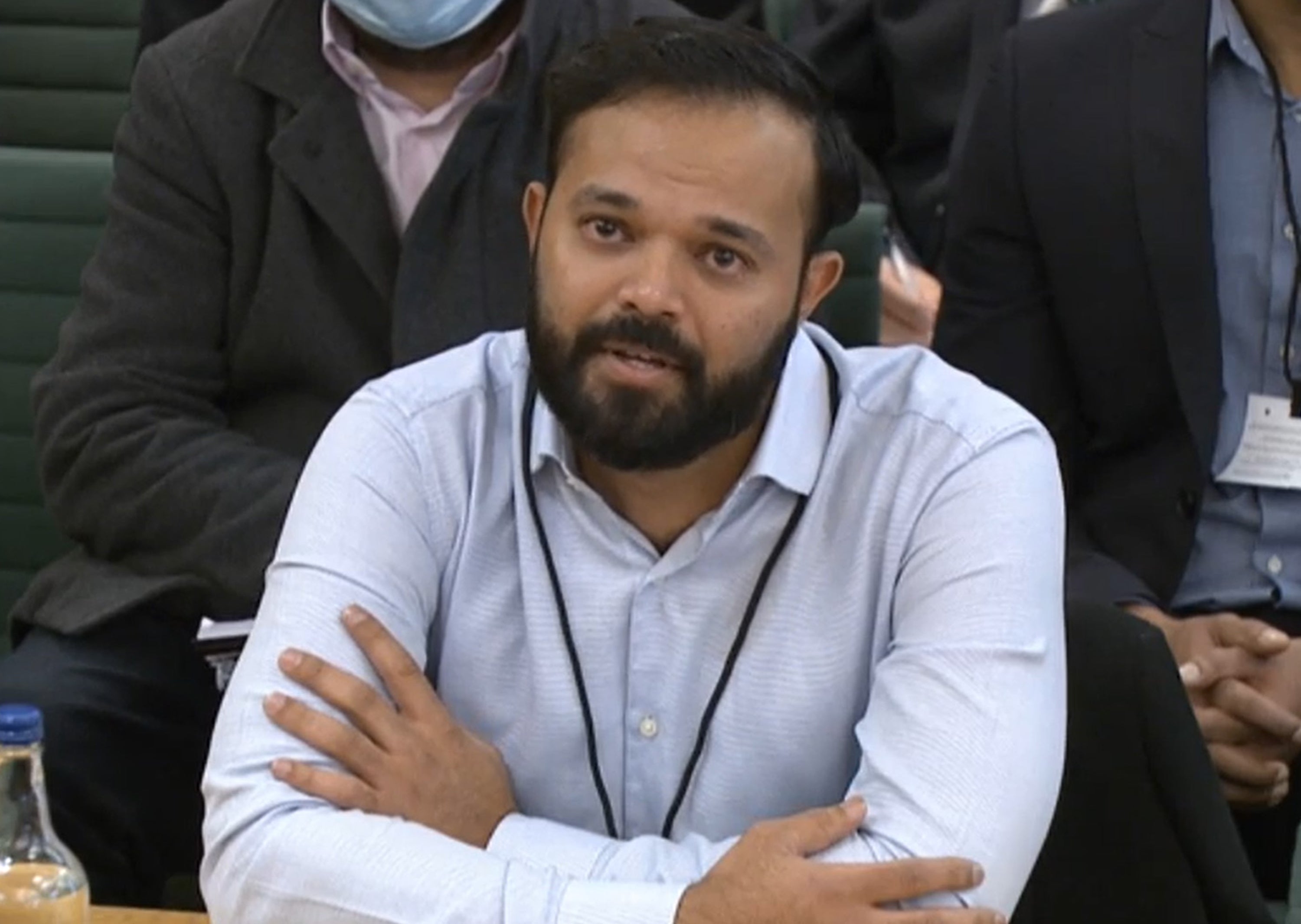Parliamentary report on racism in cricket to be published on Friday
ECB chief executive Tom Harrison said in November the sport had been hit by an ‘earthquake’

Your support helps us to tell the story
From reproductive rights to climate change to Big Tech, The Independent is on the ground when the story is developing. Whether it's investigating the financials of Elon Musk's pro-Trump PAC or producing our latest documentary, 'The A Word', which shines a light on the American women fighting for reproductive rights, we know how important it is to parse out the facts from the messaging.
At such a critical moment in US history, we need reporters on the ground. Your donation allows us to keep sending journalists to speak to both sides of the story.
The Independent is trusted by Americans across the entire political spectrum. And unlike many other quality news outlets, we choose not to lock Americans out of our reporting and analysis with paywalls. We believe quality journalism should be available to everyone, paid for by those who can afford it.
Your support makes all the difference.A parliamentary committee report on cricket’s racism crisis is due to be published on Friday.
The cross-party Digital, Culture, Media and Sport (DCMS) committee heard powerful testimony from former Yorkshire player Azeem Rafiq in November last year and said it will set out its findings later this week.
Yorkshire accepted in September last year there was “no question” Rafiq had faced racial harassment and bullying during his time at the club, as they published a summary of the findings and recommendations of an independent report which got under way almost a year earlier.
However, the county faced significant backlash for their decision not to publish the full report, or to take disciplinary action against any individuals based on the report.
The ECB withdrew Yorkshire’s right to host lucrative international matches at Headingley, while the DCMS committee launched its own inquiry into Yorkshire’s handling of Rafiq’s allegations.
On the same day the committee heard from Rafiq, it also heard from the current and former chairs of Yorkshire – Lord Patel and Roger Hutton – and from England and Wales Cricket Board chief executive Tom Harrison
Rafiq said attempts to raise complaints about the discriminatory treatment he faced at Yorkshire fell on deaf ears, before an investigation was finally launched in October 2020.
Chief executive Mark Arthur resigned four days before Rafiq’s appearance before the committee, while Yorkshire announced on December 3 that director of cricket Martyn Moxon and head coach Andrew Gale were among 16 members of staff who had been dismissed.
Lord Patel said on November 8 that the county had settled a separate employment tribunal claim from Rafiq.
The Independent Commission for Equity in Cricket (ICEC), which is looking at racism and discrimination within the game, said it was “inundated” with more than 2,000 responses in the fortnight after it opened a call for evidence on November 9.
On November 29, the ECB published a game-wide 12-point plan to tackle discrimination, with Harrison admitting the sport had been hit by an “earthquake” following the allegations of racism at county level from Rafiq and other players.
The plan includes a governance review of the ECB, which will consider whether the sport needs an independent regulator. The effectiveness of its oversight of Yorkshire’s handling of the Rafiq investigation was questioned by the DCMS committee.
The game-wide plan will also tackle dressing-room culture, attempt to remove any barriers that exist in the talent pathway and endeavour to make cricket a more inclusive environment for players and spectators.
Organisations have also been set targets for board diversity to include 30 per cent female or locally representative ethnicity by April. Compliance will be subject to a “comply or explain” provision.
ECB central funding could be withheld where equality, diversity and inclusion (EDI) minimum standards are not met.
Join our commenting forum
Join thought-provoking conversations, follow other Independent readers and see their replies
Comments